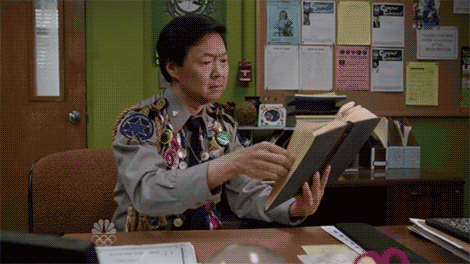
Reading Responses

Guidelines for Reading Responses (RRs)
-
An effective RR will be between one and two pages, single-spaced. You will use the memo genre, which allows headings and emphasizes clarity and conciseness. Some of your RRs may be longer as you engage more with the readings. You will need to provide textual evidence and cite the sources!
-
The Reading Response template can be found in Blackboard>Readings and Templates>Templates>Reading Response Template. Copy and past this on the running document in your Online Folder.
-
For each assigned reading, depending on the source of the reading, pick one of the questions below and respond to that prompt.
-
Copy and paste the prompt and write your response underneath.
-
-
For the Closure-Tying Things Together section, demonstrate connections across the readings:
-
how do the readings from that week connect or support each other?
-
how do they argue against each other?
-
You may use the Phrasebank to help tie concepts together.
-
-
-
Some of your RRs may be longer as you engage more with the readings. When one RR covers more than one reading, you will obviously need more than one page.
-
Your audience for all Reading Responses will be Professor Flores, even though your classmates and other instructors and librarians may read these too.
-
Your purpose for writing these Reading Responses is to demonstrate the following:
-
you have read (or viewed) the assignments carefully, by selecting what you think are the more important ideas or concepts from each reading and explaining why you think it is important;
-
you are making connections among the specific readings for each week with the readings you have done in previous weeks in the course;
-
you compare the more important concept or ideas in the reading with your previous experiences, using examples from your past experiences to illustrate your explanations; and you explore how the ideas in the readings might apply to your current work (other than this course) as a student and/or your future work as a student or professional or citizen.
-
Naming what we know Prompts
-
Explain this concept to seniors at your high school alma mater. They would want to know, in language they understand, how this concept is different from what they currently know / believe about writing. And they will understand your explanation if you connect it to examples of writing that might be relevant for them or that you know they have done or are doing.
-
Is it obvious? Or is it new information? If it's obvious, offer examples from your past experiences with writing to show that you already understood this. If it's not obvious, use examples from your past experiences to show how you had the "opposite" or different understanding of writing.
-
What part or parts of the reading were not clear, and why? How / why did they confuse you?
-
Considering your ongoing self-assessment as a learner, what kind of evidence would you need to provide to show that you have passed over this threshold?
-
How does this concept change / transform / expand your knowledge about writing, the ways you think about using writing? Offer one or more "before" and "after" examples.
-
How does this concept connect with previous concepts and expand what you know about writing. How does this reading change or add to your understanding of previous concepts.
Framework for Information Literacy-Prompts
Select statements from the list below. Offer your candid self-assessment of your ability to do these tasks. If you think you can do this, offer an example to demonstrate your competence:
-
Based on the excerpts from "Introduction and Definition" for the Framework for Information Literacy, why do you think we are emphasizing "Information Literacy" concepts in this course? How will becoming information literate contribute to your future? Offer an example or two. How much of these few paragraphs is new information to you?
-
How is ________________ an example of a threshold concept (see Meyer, Land, Baillie's explanation in the "Introduction")?
-
How or why is this concept new to you? Confusing to you? Or common knowledge to you?
-
Consider "Knowledge Practices" associated with this concept. Which one(s) describe what you know or know how to do now? Offer evidence/examples.
-
Consider "Dispositions" associated with this concept. Which ones are similar to or same as Habits of Mind? How do any of them describe you now?
-
Why is this concept relevant to or important for your success in the future?
Reading Response #1 (due 9.1)
NWWK
-
Preface: First two paragraphs, pages ix-x
-
Last paragraph on page 2, beginning with "Threshold concepts are . . . "
-
"Metaconcept," page 15-16
-
Threshold Concepts explanations found in "Reading Responses"
-
you will see a button which says NWWK
-
Reading Response #2 (due 9.8 )
NWWK
-
Threshold Concept 1.0
FIL
-
"Introduction"
Reading Response #3 (due 9.15)
-
NWWK
-
Threshold Concept 2.0
-
-
Genre in the Wild
Reading Response #4 (due 9. 22)
-
NWWK
-
Threshold Concept 3.0
-
-
FIL
-
Authority is Constructed and Contextual
-
Reading Response #5 (due 10.6)
-
NWWK
-
Threshold Concept 4.0 "All Writers Have More to Learn"
-
Threshold Concept 4.2 "Failure Can Be an Important"
-
Reading Response #6 (due )
-
Naming What We Know TC 3.1 "Writing is Linked to Identity"
-
Naming What We Know TC 3.5 "Writing Provides a Representation of Ideologies and Identities"
